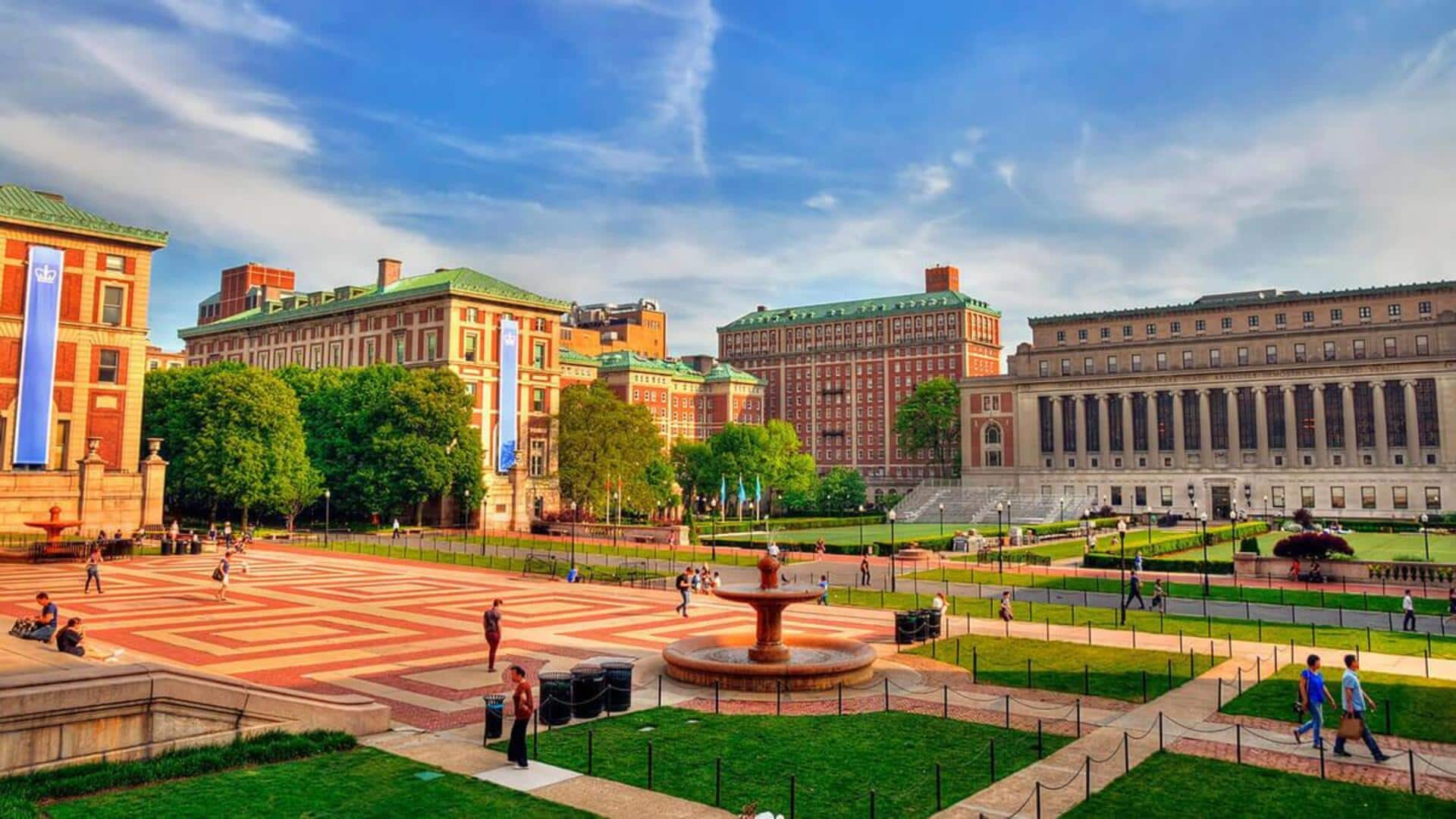
Columbia University leadership testifies on anti-Semitism allegations
What's the story
Columbia University's top officials, including President Nemat "Minouche" Shafik, appeared before a United States Congressional committee on Wednesday to address allegations of anti-Semitism on campus. The hearing was reminiscent of another antisemitism hearing in December—when two Ivy League university heads were criticized for their responses to anti-Semitism. They later resigned. But on Wednesday, Columbia University President Shafik was careful to avoid the mistakes that made the previous hearing viral. Shafik pledged strong measures against anti-Semitism and detailed disciplinary actions taken.
Context
Why does this story matter?
The hearing was prompted by a significant increase in anti-Semitism across campuses following the October 7 Hamas attack on Israel and Israel's subsequent military response in Gaza. In December, University of Pennsylvania (UPenn), Harvard University, and Massachusetts Institute of Technology presidents were slammed for their responses regarding anti-Semitism at a hearing. Two of them resigned after receiving criticism for failing to provide a clear answer on whether "calling for the genocide of Jews" was against university policies.
Campus unrest
Shafik stated that 15 suspended students had been suspended
During the Wednesday hearing, Shafik stated that 15 students had been suspended and six were placed on disciplinary probation for breaking campus protest laws. However, when Michigan Republican Lisa McClain asked if words like "from the river to the sea, Palestine will be free" were antisemitic, Shafik was evasive. Jewish groups say the slogan is a call for the destruction of the state of Israel.
Suzanne Bonamici
Shafik appeared before the hearing with law professor, 2 trustees
Shafik appeared before the hearing along with a Columbia University law professor and two trustees. When Suzanne Bonamici, a Democrat from Oregon, inquired whether calling for the murder of Jews violated Columbia's code of conduct, all four Columbia representatives responded unequivocally, "Yes." Their response was a stark difference from the December hearing, when the presidents of Harvard, Penn, and MIT responded in a legalistic manner that was condemned for lacking moral clarity.
Wider problem
Anti-Semitism amidst broader discrimination issues
In many of their responses, the officials acknowledged they still have work to do. Columbia trustee Claire Shipman responded to one lawmaker, "We have a moral crisis on our campus." Columbia University, like many colleges, has been a center for student activity in recent months, with demonstrations in support and opposition to the war. However, the university has been under extra scrutiny due to its status as an Ivy League institution and its efforts to crack down on unlawful gatherings.